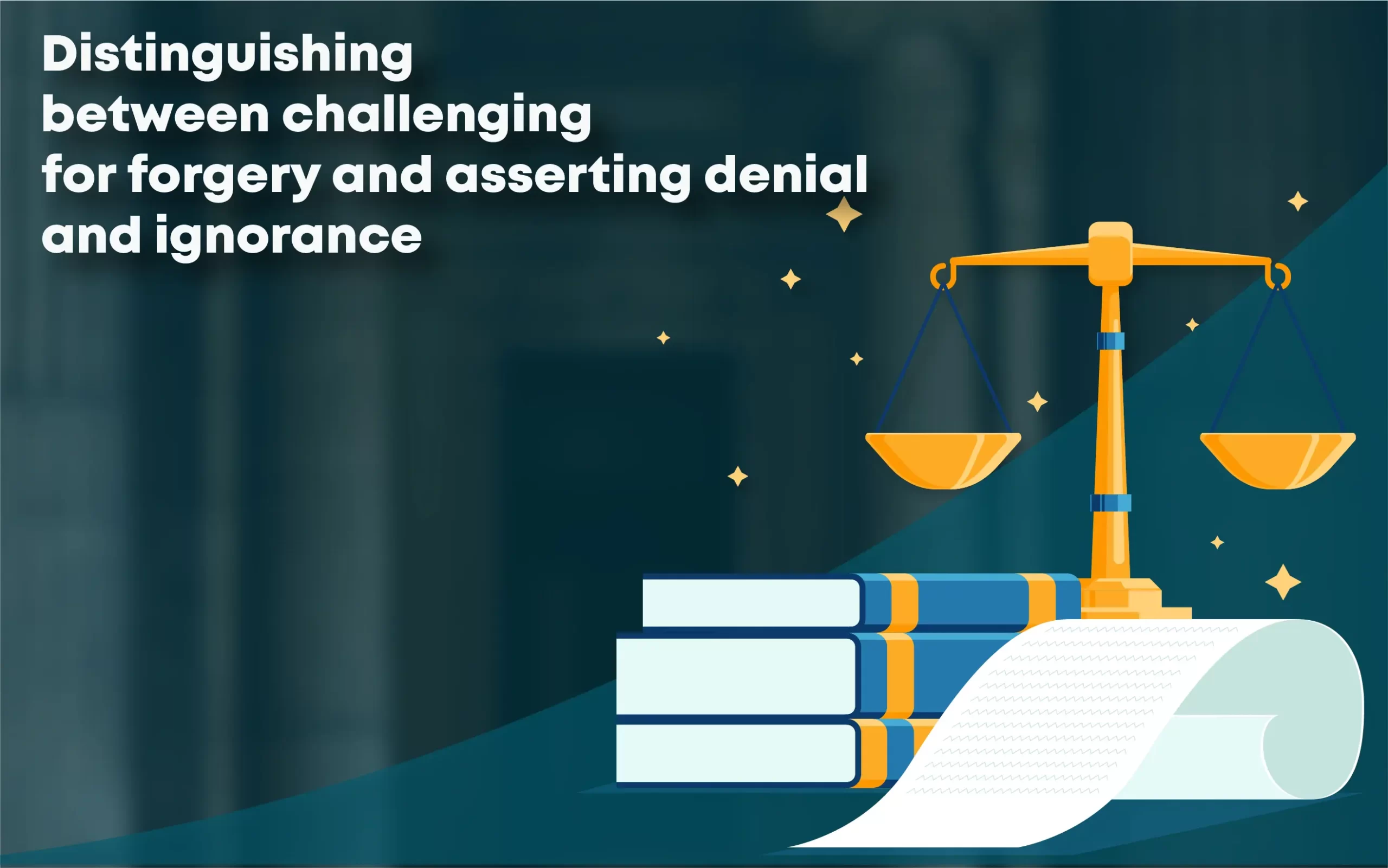Introduction
In the world of law, distinguishing between challenging a document for forgery and asserting denial or ignorance is a crucial matter that raises many questions, especially in disputes related to documents and contracts. This distinction arises from the fundamental differences between these legal procedures, as well as the procedures followed and the burden of proof required.
Challenging for Forgery, Denial, and Ignorance – Definitions and Differences
Forgery Claim: This is directed at both official and customary documents, requiring the challenger to prove the invalidity of the document and the denial of its issuance by the person in authority, without addressing the actual act in terms of its validity or nullity.
Denial and Ignorance: This applies exclusively to customary documents and must be expressed before discussing the subject matter of the lawsuit. Denial due to ignorance is a form of denial, and the role of the challenger here is to highlight the defects in the mentioned act.
Procedures and the Burden of Proof
In the case of challenging for forgery, the challenger must prove the document’s invalidity, and if an investigation judgment is issued, the document loses its validity as evidence.In cases of denial or ignorance, the document temporarily loses its validity as evidence until the concerned party proves its authenticity. In cases of ignorance, the heir’s oath of ignorance is sufficient.
Distinguishing Between the Procedures
Challenging for forgery can be initiated in any phase of legal proceedings, while denial and ignorance must be expressed before discussing the subject matter of the lawsuit. Challenging for denial or ignorance after challenging for forgery, or vice versa, is not permissible.
Expert Opinions
Amira Saqr, Lawyer and Litigator:
Distinguishing between challenging for forgery and asserting denial or ignorance poses a significant challenge in the practice of law. Lawyers must accurately understand the legal and procedural differences between these actions to properly guide their clients. As a litigator, I emphasize the importance of thorough preparation and gathering the necessary legal evidence and documents to support clients’ cases in matters related to these issues.
Ahmed Saber, Head of Litigation Department:
The distinctions between challenging for forgery and asserting denial or ignorance present a challenge for both lawyers and judges. Lawyers need to be well-versed in the legal matters surrounding these procedures and how to effectively handle them. Consequently, justice can be better served, and individuals’ rights protected in disputes related to documents and contracts.
Conclusion
The differences between challenging for forgery and asserting denial or ignorance are crucial aspects of the legal system, especially in matters concerning documents and contracts. A precise understanding of these distinctions helps determine the optimal and most effective legal procedures in case of disputes, ensuring a more accurate and efficient application of justice.

